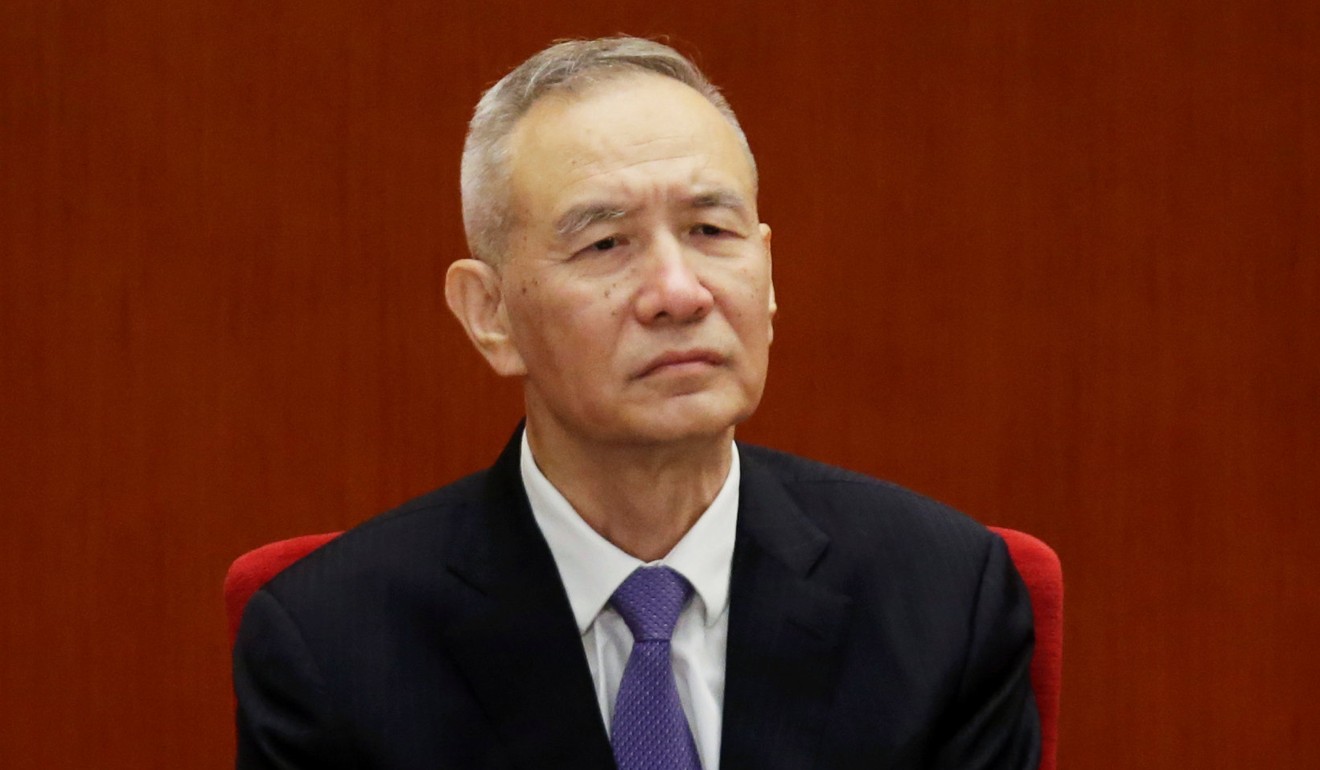
‘It could go either way’: China and the United States ready for trade war talks in Beijing
- Officials from both sides expected to take stock of commitments, with at least one sign of an offer on the table, insiders say
Sources said the working-level discussions would nonetheless be substantial, as both sides were expected to take stock of offers and demands, as well as assess how initial promises had been carried through.
Deputy US trade representative Jeffrey Gerrish will lead the US delegation, who will meet their vice-ministerial counterparts in the Chinese capital for two days of talks.
Inside US delegation for China trade talks: Washington’s big guns absent
A Chinese government adviser on trade policy said in condition of anonymity that a major deal could only be reached by more senior officials such as Vice-Premier Liu He and US Trade Representative Robert Lighthizer, top negotiators for both countries.
“The vice-ministerial talks won’t solve all the problems but both sides are expected to take the chance to check their respective demands and offers and to check any chance to reach a trade deal,” the adviser said.
“Both sides are close to finding a solution to address the trade imbalance, and China is open to moving on some of its structural problems in the economy. It will also take steps towards market-oriented competition, but the US should realise that it takes time ... otherwise it leaves no room for negotiation.”
US-based Politico reported that US officials were expected to look closely at whether China had carried through on earlier promises. In late 2018, Chinese officials gave the United States proposals to address its government subsidies, market access barriers and intellectual property theft. Those documents, and a more recent US response, are expected to be the focus of this week’s talks.
“If Gerrish hears that the Chinese are really serious about doing some hard things, putting meat on the bones of vague commitments and willing to work with the US on verification and enforcement mechanisms, then I think you’ll see negotiations move forward at an accelerated clip,” a US industry official told Politico.
If not, “it’s going to be more difficult”, the official said.
Ex-US top trade negotiator says China has deviated from its commitments
Observers said both sides needed to tackle the problems because the tariffs had taken a bite out of the economy, sending US stocks tumbling and adding to downward risks in China.
But the Lunar New Year holiday in February and annual legislature meetings in March mean there is limited time to address the disputes.
Renmin University international relations professor Wang Yiwei said that in the talks China was expected to deliver specific commitments to expand market access, improve protection of intellectual property rights and reduce the trade surplus with the US, but it would take time to reform state-owned firms – another major source of friction.
China has been preparing for a change in policy tack since leading officials met in Beijing last month for the annual agenda-setting central economic working conference.
Wang said that this time the US appeared less chaotic, with the Office of the US Trade Representative (USTR) leading the negotiations.
“It is time for both countries to work out a clear road map on what can be done,” he said.
Cooperation is best, Xi tells Trump as they hail 40 years of China-US ties
Wang said most of China’s potential commitments dovetailed with planned reforms but Washington should realise that changes to SOEs could only be gradual. The US should also refrain from pressing China for more compromises, “otherwise it will never end”.
“In addition, without a deal over trade between the two countries, it would be very hard to push forward reform of the World Trade Organisation this year,” he said.
Trump urged to end ‘mutually damaging’ tariffs after iPhone sales hit
For its part, China has resumed purchases of US soybeans, suspended punitive tariffs on imports of US cars and toned down its “Made in China 2025” hi-tech policy. It has also proposed clear bans on forced technology transfer in new draft foreign investment legislation.
Another Chinese government adviser said China was trying to defuse tensions and create conditions for a bigger truce in the first half of this year, but “the US is unlikely to stop containment on China’s technology upgrade plans”.
Peking University international relations professor Zha Daojiong said the talks could go either way.
“One prospect is that this round of talks prepares the way for commitments to be firmed up later at a higher level. The other prospect is that neither side ... expects much to come from such meetings,” Zha said. “Quite possibly, it is going to be the latter case.”
Still, former US government officials have told the South China Morning Post that the US delegation is a serious group of negotiators.
Spencer Toubia, a former US Department of Commerce analyst in the Trump administration and now an international trade lawyer at law firm Crowell & Moring, said Gerrish was “a strong and tough negotiator” in which “Ambassador Lighthizer has great confidence”.

Gerrish will be supported by, among others, Gregg Doud, the USTR’s chief agricultural negotiator, who comes from a family of soybean farmers; undersecretary of commerce for international trade Gilbert Kaplan; and Treasury Department undersecretary for international affairs David Malpass.
Frank Lavin, who held the same position as Kaplan in the George W Bush administration, described them as “a serious group of trade professionals, they are not polemicists. They are going to Beijing for serious talks.”
US trade war forces firms to rethink private investment
He said the vice-ministerial level meeting indicated that there was already an offer on the table from China, or at least the bones of a deal.
“These vice-ministers aren’t showing up to say: what ideas do you have? They’re showing up to evaluate on the ideas and see whether the US can push for more ... In my view, cabinet-level people show up for the last mile of negotiations. It is not realistic to expect them engaged at this point,” Lavin said.
Xi steers clear of trade war in glowing look back at 2018
Furthermore, speculation that the ongoing US shutdown would affect negotiations has been shot down. Toubia said the USTR was operating at full force, while the negotiators’ positions would have been cemented and established long before Washington closed for business before Christmas.
But Zha of Peking University said he doubted there would be an extension of the March 1 ceasefire deadline if an agreement could not be reached by then.
“The US side might not have much more ammunition than raising tariffs on the trade front. But then, again, the trade talks are only partially about trade. So, stay tuned,” he said.


